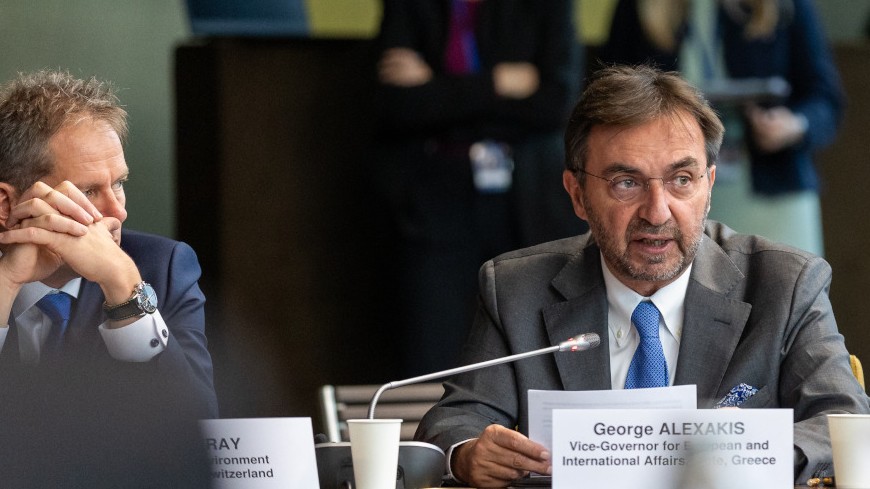Europe's regions are deeply committed to the energy transition and are aware that, if these changes are to succeed, they will require solutions tailored to the specific features of each region and the support of the populations directly concerned. A debate on the role of regions in the energy transition, held on Wednesday 25 October in the Chamber of Regions, illustrated these principles with a number of practical examples.
Vice-Governor for European and International Affairs, Crete (Greece), George Alexakis is also in charge of energy and climate at the Conference of Peripheral Maritime Regions (CPMR), of which he is Vice-President. Noting that the energy transition must be “fair” in geographical terms and understood by local populations, he said this was even more important in island regions, which have very specific features.
Thanks to the sun and the sea, Crete is diversifying its renewable energy sources to move away from fossil fuels. To address the “vital” issue of energy storage, a combination of wind power, photovoltaics, geothermal energy and “green” hydrogen is now being used on the island, which is linked to the mainland via two submarine cables. Interconnections are also being created between Crete and Egypt.
The people of Crete are also involved in the energy transition in practical ways, as in Minos, where, following a decision by local residents, photovoltaic equipment now supplies 400 homes and businesses with free electricity. For Mr Alexakis, this is an example of the kind of “energy democracy” that must accompany any energy transition.
Acceptance or rejection: the importance of dialogue on the energy transition
David Eray, Minister of the Environment of the Jura Canton (Switzerland), outlined a number of innovative projects being carried out in his canton, including biomass, wind power and geothermal energy projects, before returning to the question of democracy: “It's only natural for there to be concerns and opposition to certain projects, but strong opposition to developments that have already been democratically endorsed by the community does raise issues about respect for the rule of law,” he observed.
In any case, energy transition projects must fit the needs of the local population, and vice versa. “We need to be consistent in our approach, and able to explain it properly to all members of the community,” concluded Mr Eray.
Faced with the gradual phasing out of lignite, a highly polluting type of coal, Lusatia (Lausitz), a region in eastern Germany, has also mapped out its plans for energy transition while seeking consensus with local residents, explained Heiner Klemp (R, Germany, SOC/G/PD). The same concern was expressed by Cecilia Dalman-Eek (R, Sweden, SOC/G/PD), who believes that including municipalities and incorporating citizens' suggestions in any action taken, through the “Smart Energy” renewable energy network, encourages democratic dialogue. Levan Zhorzholiani (R, Georgia, SOC/G/PD) and Aida Jalilzade (R, Azerbaijan, ECR), for their part, pointed out that the major transit and “green corridor” projects that are to traverse their respective countries will enhance their role as an energy hub between Europe and Asia.
Combating energy poverty
Andres Rodriguez Perez, a youth delegate from Spain, called for greater dialogue between young people and the authorities around the energy transition, and in particular the issue of fairness. Local and regional authorities should, in his view, ensure greater equality between urban and rural areas when it comes to energy transition. This point of view was echoed by Lia Montalti (R, Italy, SOC/G/PD), who expressed concern about the “energy poverty” being experienced by a growing number of families who can no longer afford to buy energy, renewable or other. Her own region, Emilia-Romagna, is currently building the largest wind farm in the Mediterranean, a project that is “essential” if the energy transition is to succeed.
Mediabox interview with George Alexakis
****
45th Session
Agenda – Web file – Multimedia (Live webcasts, interviews, videos and photo)




